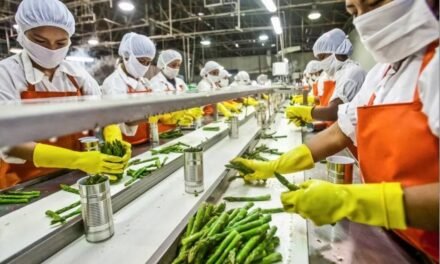It is believed that Food Safety Officers are a new version of food inspectors, under the FSSAI Act only the name is changed. It is important that FBOs should know how to protect their own legitimate interests under the law. Unfortunately, there is no safeguard under the Food Safety and Standards Authority of India to address these issues quickly, explain Vijay Sardana and Priyanka Sardana.
Table of Contents
Section 38 of the Food Safety and Standards Act 2006 defines the Powers of Food Safety Officer (FSO). It is important to note here that Food Safety Officers are a new version of food inspectors, under the Food Safety and Standards Act 2006 only the name is changed but the mind-set and approach remain the same and no one in FSSAI management is discussing in public as to what amendments they have done to improve the mind-set of the field staff of FSSAI. In the absence of any tangible improvement on the ground, it is important that everyone should know rights of FBOs and should know how to protect their own legitimate interests under the law and continue to deliver safe and wholesome food to the consumers.
Point No. 1: Sampling and Seizer of Products as Evidence by Food Safety Officer
Under Food Safety and Standards Act 2006, the Food Safety Officer may take a sample of any food, or any substance, which appears to him to be intended for sale, or to have been sold for human consumption; or of any article of food or substance which is found by him on or in any such premises; which he has reasons to believe that it may be required as evidence in proceedings under any of the provisions of this Act or of the regulations or orders made thereunder; or seize any article of food which appears to the Food Safety Officer to be in contravention of FSSAI Act or the regulations made thereunder.
How Food Safety Officer Derive Power from This Law?
This clause of the Food Safety and Standards Act 2006 gives a lot of power to Food Safety Officers. There is no objective criteria or approach which is specified under the Act or rules, how to differentiate between what is right or wrong during an inspection. Example: Water is an adulterant in milk industry and also used f
or clearing purposes. Now, if the food inspector will decide or declare that water is adulterant and was kept near the milk tank, there is no way one can stop the food inspector from filing an adverse report against FBO or if a company is selling two or three different types of edible oil, an inspector can always make a case that these were kept for adulteration and it will be a long, tedious and expensive effort to prove that the inspector’s observation was malafide or wrong. In every product, there can be similar situations.
Unfortunately, there is no safeguard under the FSSAI to address these issues quickly. This vagueness in the Act and rules or lack of clarity in the defined rules by FSSAI for its own FSO / food inspectors or in the absence of proper guidelines for FBOs, allows the inspectors to misuse their power to exploit or extort money from FBOs. The lack of transparency in the function of FSSAI departments and FSSAI laboratories also gives power and push to corrupt practices. In brief, these are the reasons why all FBOs talk about corruption in Food Safety departments. The saddest part is there is no visible and transparent attempt by FSSAI management to address these corrupt practices in the field. FSSAI management must address these serious issues affecting honest FBOs.
What FBO should do to protect their legitimate rights?
As FBO you cannot stop any food inspector from doing what is prescribed under the law. The only thing which you can do are the followings :
Ensure proper documentation:
All FBOs should maintain proper and updated Standard Operating procedures, product specifications, and other relevant documents. This is a must for FBOs because once there is a legal notice or case filed against them by FSSAI, the only defence which is available to them is their proper documentation. No verbal statement will carry any weight. Inspectors know this, where there are weak documentation, they get encouragement to misuse their powers.

Also Read: How Food Business Operators Can Protect their Legitimate Rights
Point No. 2: Food Safety Officer may take a sample for safe custody
Under the FSSAI Act, the Food Safety Officer is authorised to take samples and to keep the same in the safe custody of the food business operator, such article of food after taking a sample. In both cases, he should send the same for analysis to a Food Analyst for the local area within which such a sample has been taken as per the law.
The Food Safety Officer may enter and inspect any place where the article of food is manufactured, or stored for sale, or stored for the manufacture of any other article of food, or exposed or exhibited for sale and where any adulterant is manufactured or kept, and take samples of such articles of food or adulterant for analysis.
How Food Safety Officer derive power from this Clause?
Any person in the name of FSO may enter your premises. FSO may demand food items for the samples and you cannot say no because this is their legitimate power to do so for analysis and for further legal proceedings.
What FBO should do to protect their legitimate rights?
There are many complaints that the FSO enters the food factories or shops without proper intimation and information and pick up expensive products in large quantity like expensive liquor bottles, expensive cheese, dry fruits, etc. in the name of sampling and they don’t even pay for these products when they lift these products from their shop or factories in the name of sampling.
Points you, as an FBO, must keep in mind
It is your legitimate right to protect your premises from unauthorised entries. You may ask the person visiting as Food Safety Officer to share his credentials and ID. Take photos of the person visiting and the ID card and keep in the record for future reference. You may ask your security staff to maintain a proper visitor’s register and every FSO should make a proper entry into the register. If he refuses, you may prevent his entry to the Food premises, because this person can be a safety and security hazard/risk for your business.
If there is any doubt you may ask the concerned department to confirm the persons coming as FSO.
Where any sample is taken, its cost calculated at the rate at which the article is usually sold to the public shall be paid to the person from whom it is taken.
Where a Food Safety Officer takes a sample of an article of food for analysis, he shall pay, the cost of such sample, to the person from whom the sample is taken, calculated at the rate at which the article is sold to the public. If he is not keen to pay, you should not give him the sample and check his ID and details and cross with the department about the person visiting as Food Safety Officer. He can’t force you to give samples free of cost. You should demand money from the inspector and you should issue a receipt of the sample taken by the FSO/inspector with proper batch number and details. This is your legitimate right under the FSSAI Act.
Always demand the portion of the representative samples from the Food Safety Officer who is taking the sample from FBO.
The amount which is required for the sampling is also specified under the law. FSO cannot demand a full bottle of expensive liquor or a full block of expensive cheese, etc. if these are more than the required and specified sampling quantity. This will be discussed in detail in future articles in this series.
If he insists you have to call at least two witnesses and obtain the signatures from the witnesses in all the forms and documents should be prepared.
Today, you have smartphones, you may also record all the conversation and take a photograph of the samples and documents in the presence of food safety office and take his photo as well.
You also have the legitimate right to know his identity and correct office details and address of the person who is coming as a Food Safety Officer and enquire about his jurisdiction.
When a Food Safety Officer takes a sample of food for analysis, he shall give notice in writing of his intention to have it so analysed to the person from whom he has taken the sample and to the person, if any, whose name, address and other particulars have been disclosed;
Please ensure that you must read all the documents carefully and all the details in the prescribed form. Wrong entry of manufacturing or an expiry date in the form can put you in trouble.
Please keep in mind that there is no alternative to proper documentation in case there is legal action against you. You can only prove your innocence through proper documentation only. This documentation will also give a boost to the confidence of your staff and your buyers and associates may also feel satisfied and secure due to proper and audited documentation.
There is no harm in having regular training and internal audits of your own documentation systems. This will ensure that you are ready to meet any unfair demand and litigation from any side. Hence only selected people with proper knowledge should be authorised to sign any document.
Meanwhile, you may send your queries, questions, and feedback to [email protected]
















